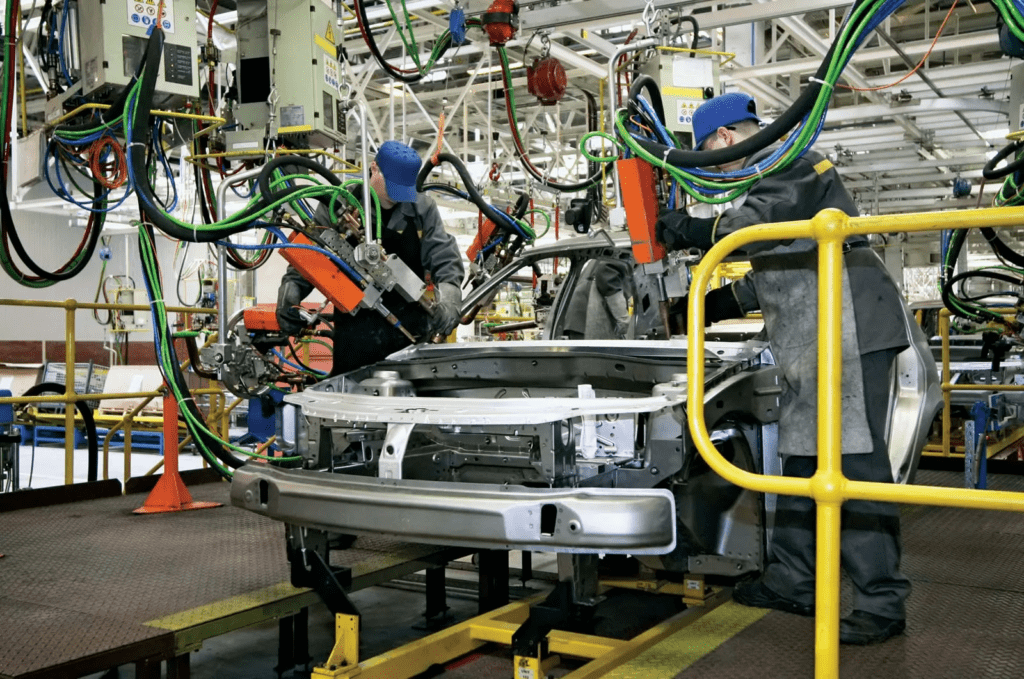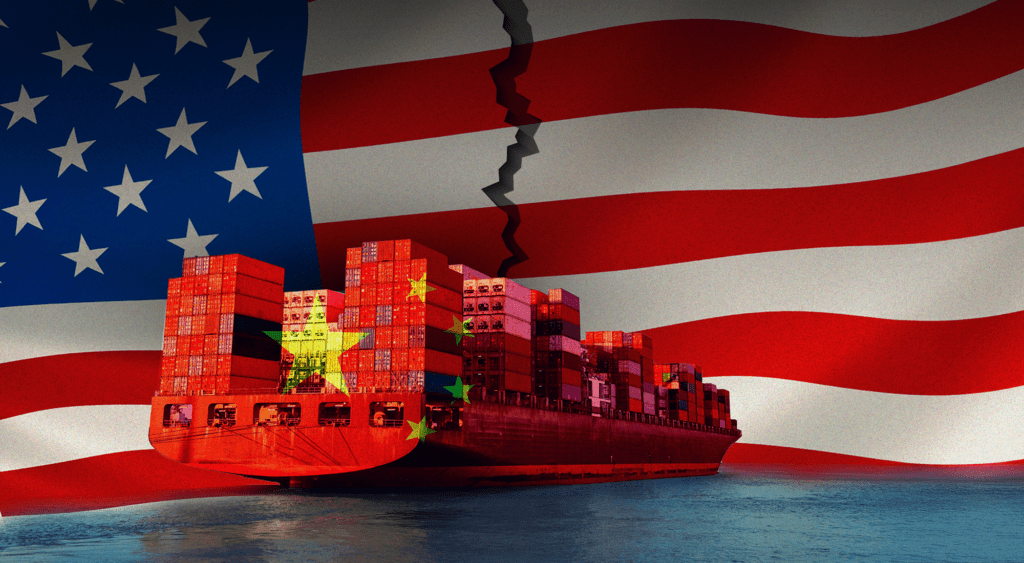
On Wednesday, President Donald Trump announced that a 25% tariffs would be imposed on automobiles and auto parts imported into the United States. The new measures, which will take effect on April 3, are permanent and have triggered a strong backlash, particularly from Germany, one of the world’s largest exporters of automobiles. German officials have called on the European Union to deliver a “firm response” to Trump’s decision, warning that it could harm global trade and economic growth.
Key Highlights:
Germany’s Strong Reaction to U.S. Tariffs

Germany, home to major auto manufacturers like BMW, Mercedes-Benz, and Volkswagen, views the tariffs as a significant threat to its automotive industry. “It must be clear that we will not back down,” said Robert Habeck, Germany’s economy minister, in a statement. He emphasized the need for strength and self-confidence as the European Commission negotiates with the United States to resolve the issue and avoid further escalation.
France and Other EU Members Express Concerns

French finance minister Eric Lombard called the tariffs “very bad news” and suggested that the European Union might have to retaliate by increasing its own tariffs on U.S. auto imports. The global economic implications of a trade war are significant, with analysts warning of a ripple effect on the auto industry and global supply chains.
Impact on European Automakers and Stock Market Reactions

Trump’s announcement sent shockwaves through the stock market, with shares of German automakers, as well as Italian carmaker Ferrari and Swedish manufacturer Volvo, tumbling. The news also impacted European auto parts suppliers like Pirelli and Continental. BMW, one of the companies most affected by the tariffs, issued a statement urging the European Union and the United States to find a solution that would avoid the negative effects of a prolonged trade dispute.
The Potential Economic Consequences of a Trade War

Analysts at Bernstein noted that the tariffs could have serious economic repercussions, both for European automakers and U.S. consumers. Automakers could either absorb the cost of the tariffs or pass them on to consumers, potentially increasing car prices by as much as $12,000 per vehicle. This price hike could lead to inflation and put additional pressure on the Trump administration to reconsider its position.
The Wider Impact on the Global Automotive Industry

The European Automobile Manufacturers’ Association (ACEA) warned that the tariffs come at a time when the European auto industry is already facing increased international competition and ongoing transformation. Sigrid de Vries, the association’s director general, urged President Trump to consider the long-term negative impact of the tariffs on both global automakers and domestic manufacturing in the U.S.
Germany’s Lobby Group Calls the Tariffs “Fatal for Free Trade”

Hildegard Müller, president of Germany’s main automobile lobby group VDA, called the tariffs “a fatal signal for free and rules-based trade.” She highlighted the significant burden the tariffs would place on companies and global supply chains, warning that the consequences could be felt not only by automakers but by consumers as well, especially in North America.
The Risk of a Global Trade War

The threat of a global trade war looms large, with experts warning that the tariffs could have far-reaching consequences for the global economy. “The risk of a global trade war, with negative consequences for the world economy and growth, prosperity, jobs, and consumer prices, is very high,” Müller said in her statement. The trade dispute could have a ripple effect across industries and countries, escalating tensions and potentially disrupting global supply chains.
The Hindustan Herald Is Your Source For The Latest In Business, Entertainment, Lifestyle, Breaking News, And Other News. Please Follow Us On Facebook, Instagram, Twitter, And LinkedIn To Receive Instantaneous Updates. Also Don’t Forget To Subscribe Our Telegram Channel @hindustanherald
